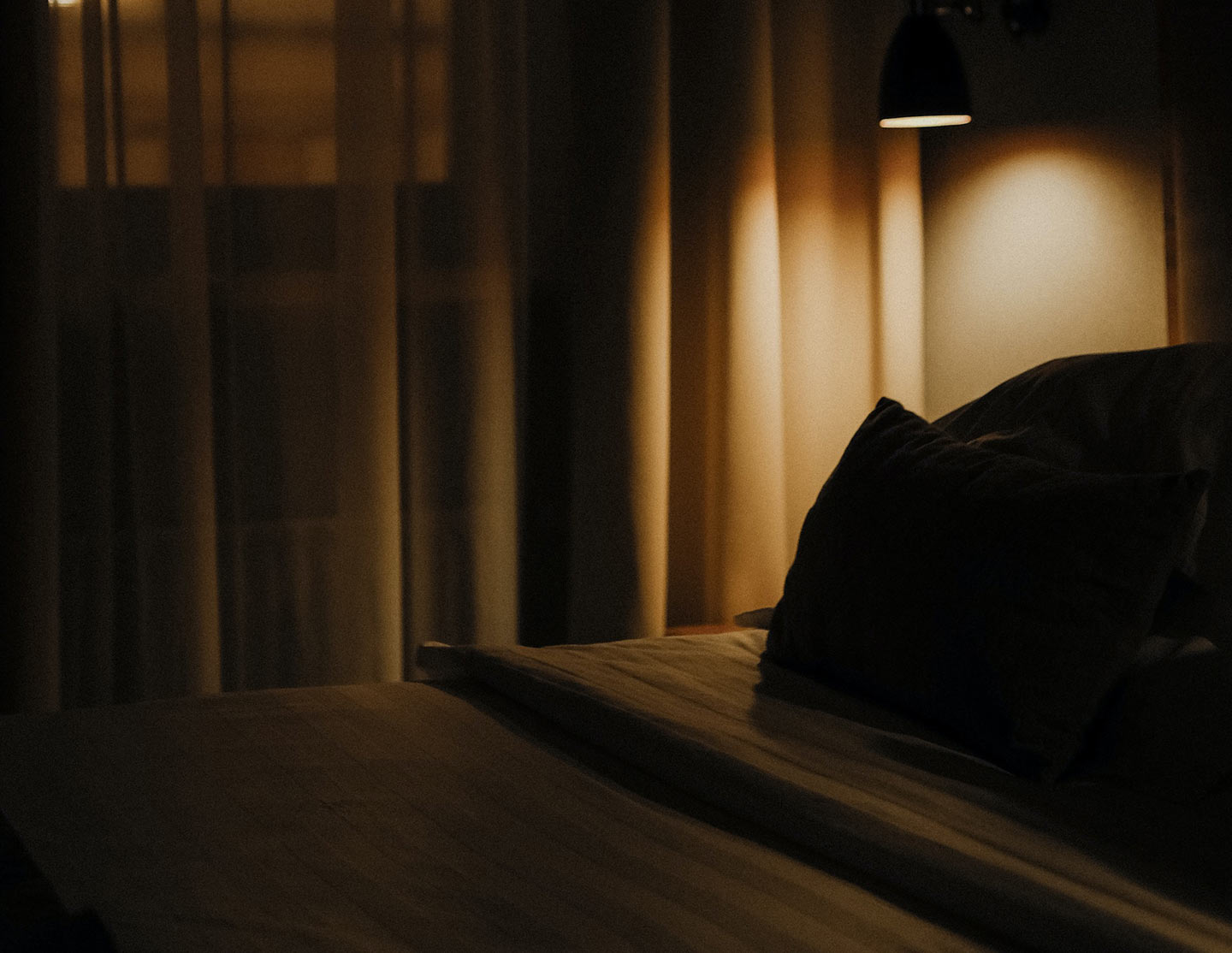Jack slouched on the edge of the bed, flicking his thumb across the screen of his smartphone. Images and text whirred by but none of it registered. His focal point was beyond the phone at the intersection of the brown berber carpeting and the off-white baseboard trim of the wall before him. He scrutinized the surface of the trim, pockmarked and rough, with drips and runs of dried paint. He mentally cataloged the blemishes and imperfections.
In his current condition, the trim was just bothersome enough to steal focus from his phone. He wondered if the hotel was even aware of the horrible workmanship. The sloppy finish didn’t cause guests discomfort. It didn’t prevent them from sleeping or fornicating. No, the hotel wasn’t aware. The trim piece probably didn’t keep the maintenance guy up at night but Jack hoped it at least nagged him a little — an ugly oak plank in his fat, fleshy side.
In reality, the overweight and lazy maintenance man formed by Jack’s imagination, is a thin, energetic, and hard-working woman named Maggie. She could not be less aware of the trim’s existence. Had she been aware, it would have been promptly replaced. Maggie wasn’t to blame. The trim had been botched by a talented finish carpenter named Michael a few weeks earlier. He was one of several contractors hired by the hotel management company to update the guest rooms on the third and fifth floors.
Until his extramarital affair with bourbon, Michael had been a caring husband and attentive father. The night before he started work at the hotel, he stumbled through the door of his family’s Alexandria home only to cause irreparable damage to his marriage. This kind and soft-spoken man, adored by his family, was again transformed into a loud, bitter, and aggressive drunk. He maintained consciousness just long enough to lose a screaming match with his wife and punch a hole in the dining room wall — the former plainly heard, and the latter witnessed first-hand by his young daughters. Michael awoke the next morning to a hollow home. His wife and girls were gone. He was alone, left only with a throbbing headache and a slowly evolving recollection of what had happened.
Michael had grown accustomed to working through the physical misery that followed a night’s drinking. But he was not prepared for the emotional pain and burden of reality he faced that morning. He went to the job site, dizzied by intense emotions — oscillating between anger, grief, regret, fear, sorrow, and shame. He started and ended his work in the room where Jack now sits. He dove into his work to distract himself. He had nearly finished the room, his attention on the final section of baseboard when his phone rang. He paced the room pleading with her to return. Geographically, she was halfway to her parent’s home in eastern Iowa. Emotionally, there was no unit of measure sufficient to capture the distance. It was over. She couldn’t take it anymore and she couldn’t, wouldn’t, allow the girls to be around him. Her words compelled Michael to leave his favorite hammer buried in the wall by the nightstand. He stormed out of the hotel and into the embrace of a bottle, never to return for his hammer.
The commotion of Michael’s dramatic exit, the discovery of the hammer in the wall, and the subsequent repairs, drew attention away from the section of trim that Michael had hastily painted and half-assed into place. Jack was the second person to notice the trim — the first was one of the housekeeping staff. Rosie had worked at the hotel for nearly thirty years and knew every inch of the guest rooms. Seldom did a detail escape her. She hadn’t bothered to mention the baseboard to anyone. In fact, its presence brought Rosie a peculiar satisfaction — an aesthetic chink in the hotel’s pretentious armor.
It was, of course, impossible for Jack to know what had transpired with Michael. If he had known, he would have explained that the situation in its entirety, from the time the brown spirit ensnared his mouth and mind to his final swing of the hammer that sorrowful morning, was the exact reason he hated to fly commercially. He would explain that life happens to everybody. He would rant about human error, cause and effect. He would argue that there are people like Michael all over the world and that airline pilots and airplane mechanics aren’t exempt from life’s hardships. He would vent about pre-flight checks performed by distracted, exhausted, or hungover pilots. He would hypothesize about critical repairs made by mechanics who just lost a parent, spouse, or child. It may be an eviction notice, court summons, unexpected diagnosis, or a newfound love of needle-in-vein to make it all disappear. The list was endless and none of us are exempt. He would tell you that we are all Michaels at one time or another and that is perfectly fine when you’re flipping burgers or working on spreadsheets. But it’s a different thing entirely to think about one of those Michaels at the stick of a flying gas tank six miles above the hard earth, in the pilot’s seat of his very life.
A few hours earlier Jack had suffered a flight. To most of the passengers on the short hop from Detroit to Washington D.C., it was average in every imaginable way. To Jack, the flight was eighty-nine wretched minutes on the bitter edge of death. Although he had flown for years and learned to outwardly manage his debilitating anxiety, inwardly he was a wreck. Every creak, crack, pop, and groan made by the winged behemoth flooded him with sensory data saturated with disaster — all signs and symptoms of his impending destruction. His mind hopped from one horrible scenario to another. Beyond his foundational distrust of people like Michael the carpenter, or simply those in physical control of his destiny, he maintained an extensive list of airborne calamities: the wings buckling at take-off, an exit door ripping off and subsequently tearing the fuselage in half, an engine ablaze at cruising altitude, landing gear not extending on approach. From takeoff to touchdown, his adrenal glands fired like an artillery battery at an advancing adversary.
Ready? The loud chime from the text message startled Jack.
Yep. He punched out in reply.
Jack left his room and made for the lobby, never to give the trim another thought.


Comments
Please read the Comments Policy for guidelines and guardrails.